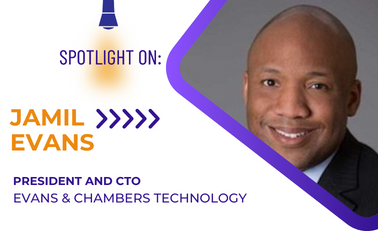
I got into cyber – when I took an assignment leading the modernization of the enterprise background investigation case management system that an Intelligence Community customer used as a part of its duties to vet individuals for US government clearances. As the lead software architect on the project, I met the challenge to bake defense-in-depth cybersecurity approaches into the design, development, and testing of the solution. I went on to mitigate security risk and achieve information security compliance for many more software development and integration projects within the IC, and later to build SaaS solutions for B2B markets.
For me, a positive cyber mindset is – easier to achieve when you realize you don’t have to do it alone! There’s a vibrant and diverse cyber community available to you. Given the rapid pace of change in cyber threats, regulation, and compliance controls, I find I can maximize my effectiveness by bartering my expertise in securing software solutions with experts that are smart in other areas. This is a major reason I’m active in The Cyber Guild as an advisory board member, and why I help to host our CyberTunity networking events and podcast.
What I thought I wanted to be when I grew up – was an inventor. While my younger self may have envisioned inventing fantastic things like a flying car or a teleportation machine, my underlying drive was to actually just build things, period. This explains my desire to take on two majors when I enrolled at Bucknell University; BA in Fine Arts, and BS in Computer Engineering. I ended up dropping the fine arts degree, but I continue to express my creative side through the design and UX of the software products I build.
The skill that set me up for success – Active listening. This is a skill set that did not come to me naturally, I gained it when my business partner and I founded our company and began selling our web design and consulting services to DC area businesses. With active listening, I’m able to develop trusted partnerships with customers, increasing the likelihood of them taking on cyber defense projects with Evans & Chambers to better protect their most critical assets.
My top tip to those interested in transitioning to a career in cybersecurity is – Dip your toe in the water! It can be overwhelming to know where to start in an industry with so many areas of specialization, but start with an area that best aligns with your skill sets and start learning. Once you’ve learned about that area, move to an adjacent area. Repeat until you’ve found an area that fits you. Keep in mind that you don’t need to have a technical background to succeed in cyber. Cyber is most effective when teams are composed of members with deep understanding of different industry verticals.